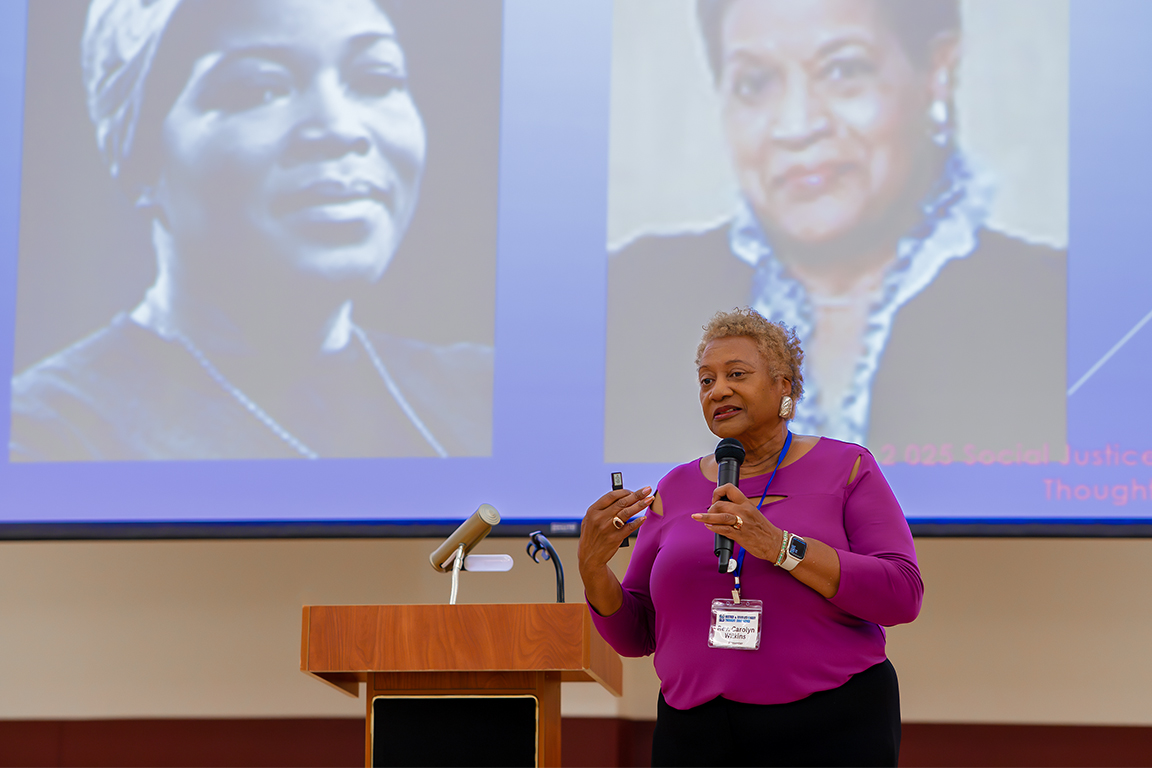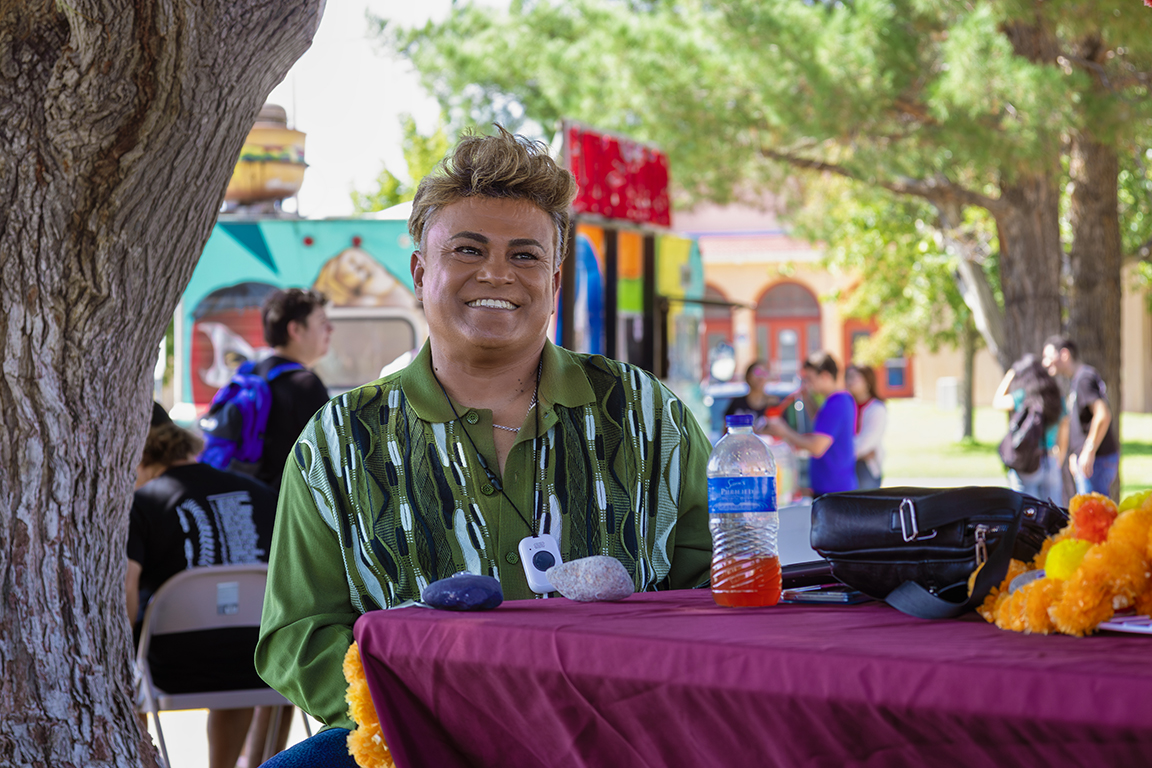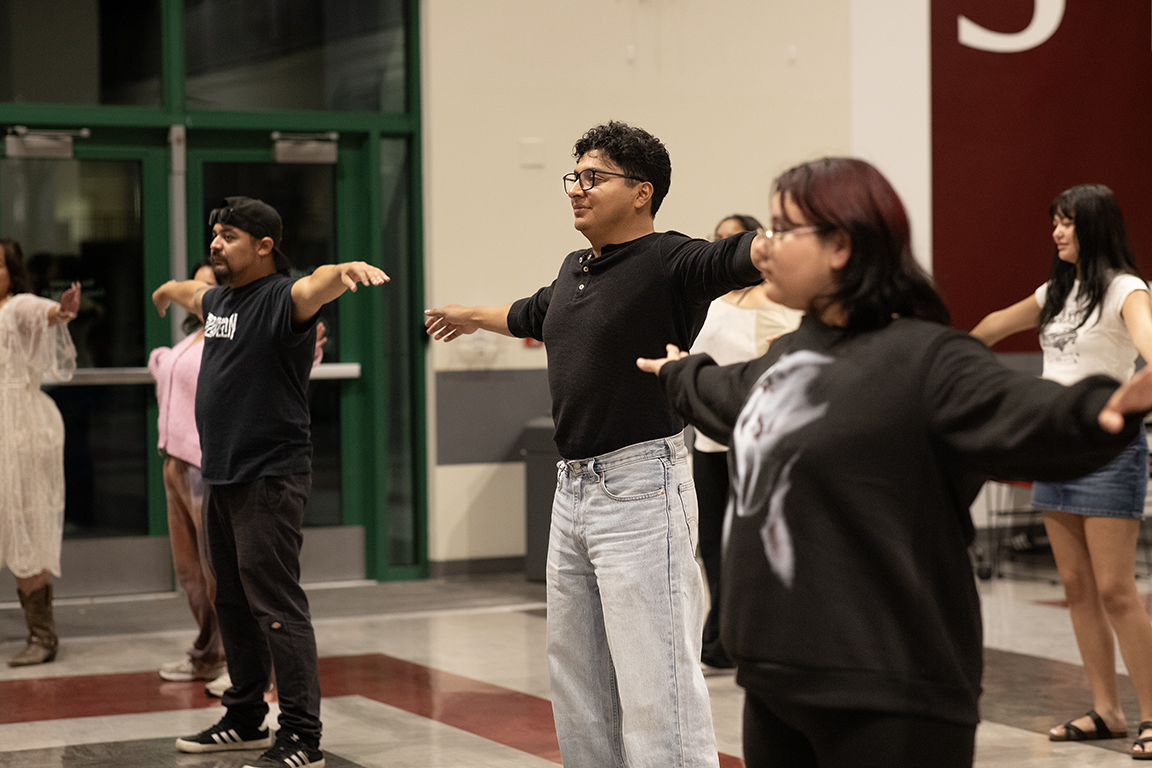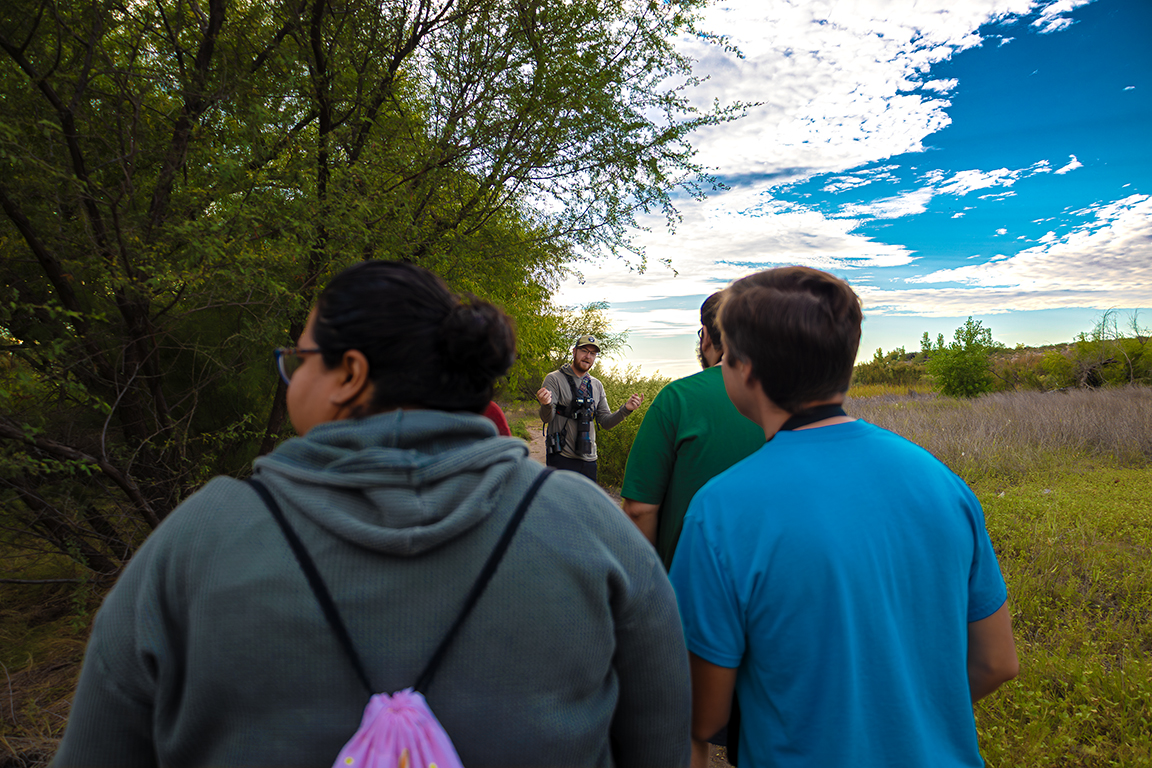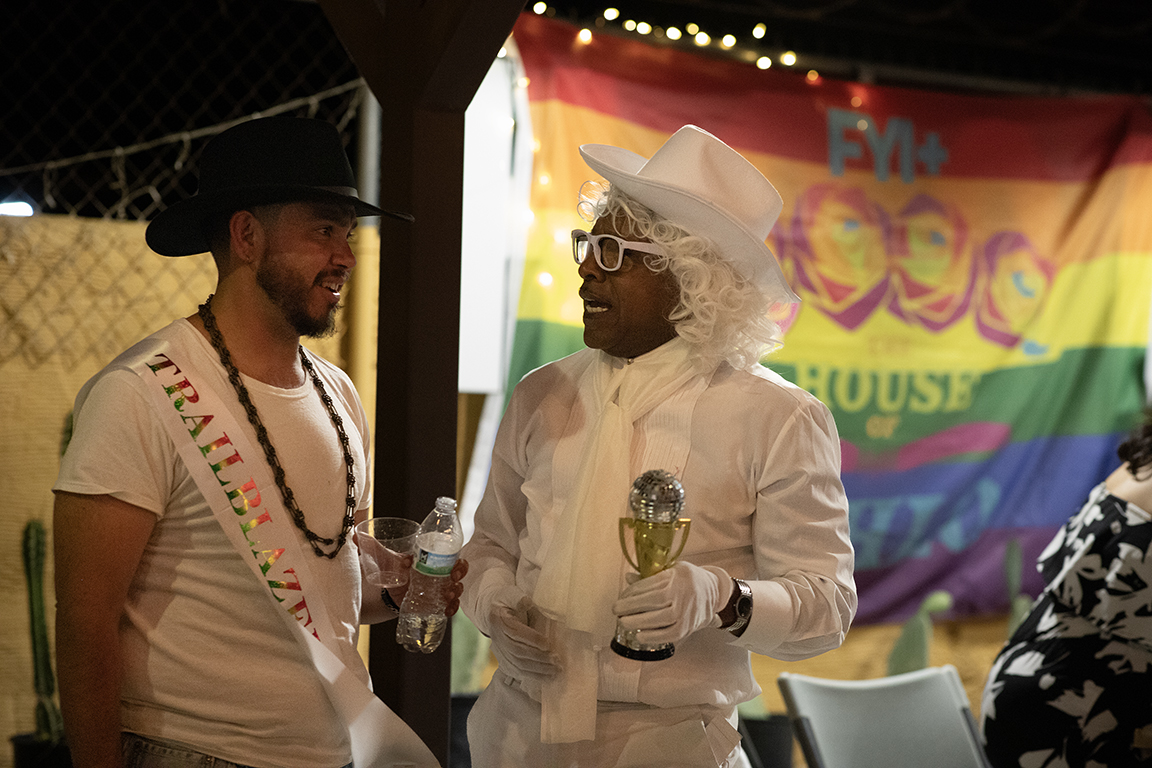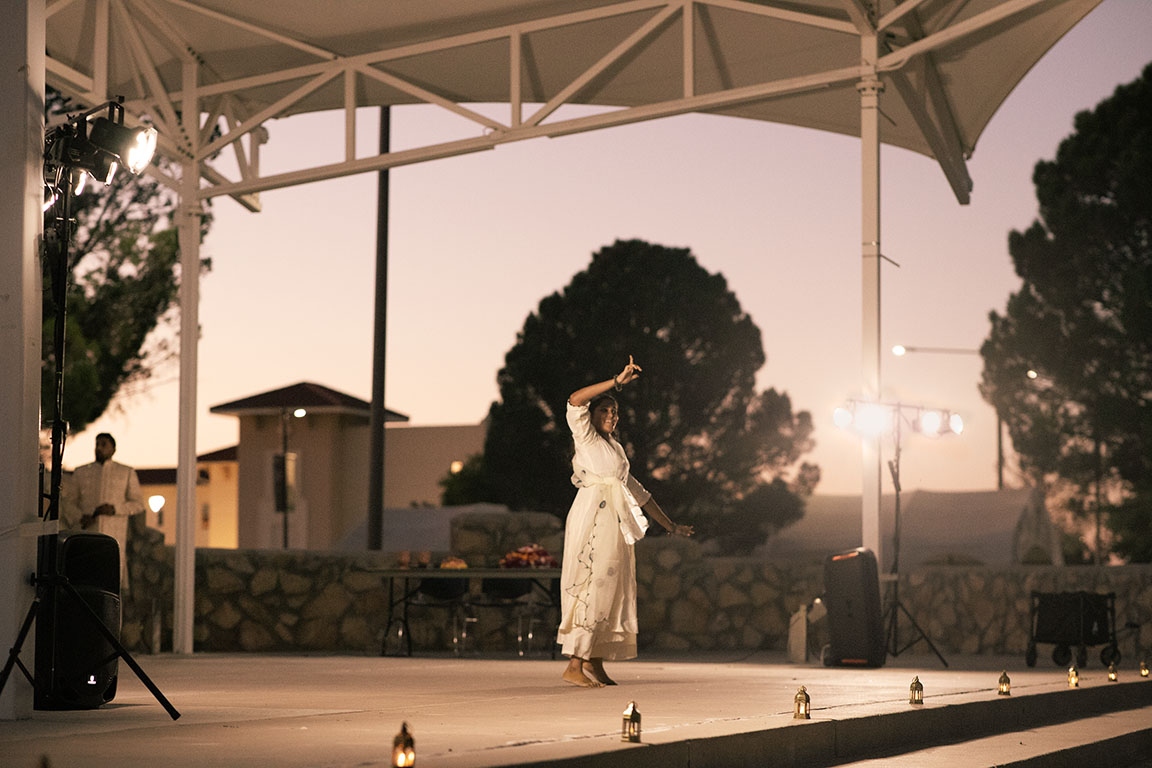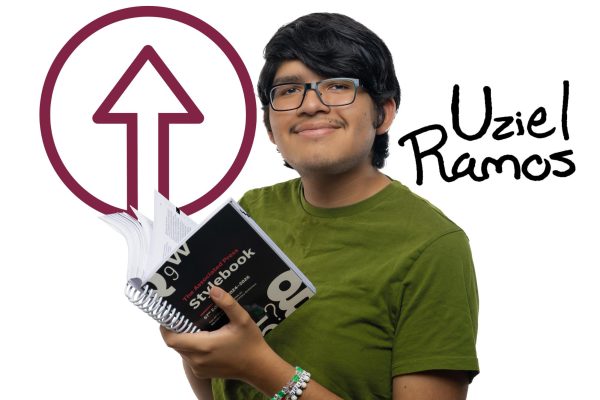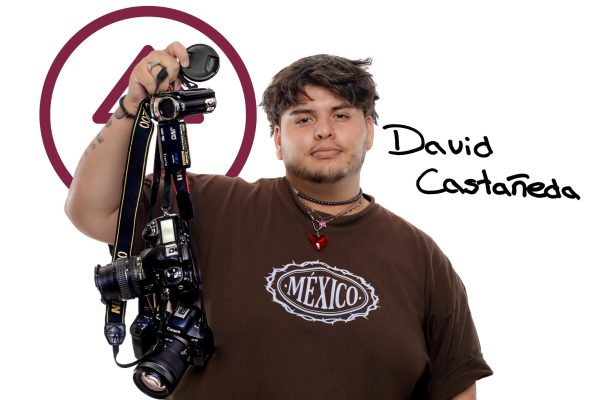The Office of Equity, Inclusion and Diversity hosted New Mexico State University’s 2025 Justice and Revolutionary Thought Conference on Wednesday, March 26 in the Corbett Center Student Union ballrooms. The event, co-hosted by the university’s diversity programs, including the Asian and Pacific Islander Program, LGBT+ Programs, Black Programs, American Indian Program, and Latin American Programs, featured presentations about social justice, political action, and unity.
The conference was divided into 30-minute time blocks, each showcasing three different presentations at the same time, as well as two separate presentations at the CCSU auditorium. The topics of the event ranged from minority identities under colonialism and combatting harmful stigmas, to the usage of social media and memes as tools of resistance. The conference started with an introductory presentation by Christian Cardenas, who talked about expressing her life experiences in the borderlands through her artwork.
Head of the Borderlands and Ethnic Studies Department, Dulcinea Lara, and graduate student Audrey Dijeau presented “The Necessity of Ethnic, Cultural, and Identity Studies for Asian Americans and All Students.” They talked about the impact that ethnic study courses have on the worldviews and careers of NMSU students.
In their presentation, Dijeau also discussed the importance of acknowledging the prevalence of two major stereotypes about Asian Americans: the model minority myth and the perpetual foreigner stereotype.
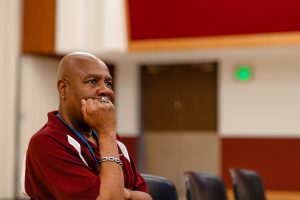
“In the model minority myth, people characterize that as positive,” Dijeau said. “But what it represents is that we have the expectation upon us that we are successful at assimilating into the dominant culture of the United States, which is completely turned on its head when you look at the other controlling stereotype, the perpetual foreigner, where we never truly become a part of the United States.”
For her master’s degree at the University of New Mexico, Judy Garcia presented “Nuevomexicanos: Language Loss and Consequences.” Garcia shared harmful assumptions as to why many New Mexicans of Hispanic descent can not speak Spanish today, and the intergenerational trauma following the territory’s annexation into the U.S. that caused the language to be lost.
Garcia explained to the audience that one of the main systems that drove this language loss was the American education system, where Nuevomexicano students were abused into not speaking their native tongue.
“Sometimes, if the kids were caught speaking Spanish in class, they were forced to write English sentences on the chalkboard or on paper. Sentences like ‘I will not speak Spanish, only English,’ and others,” Garcia said. “Another reason as to why the language was lost among Nuevomexicanos was because they needed to survive this colonialism, and they stopped teaching the language to their children because they were told in school that English was the only way to have a life in the United States.”
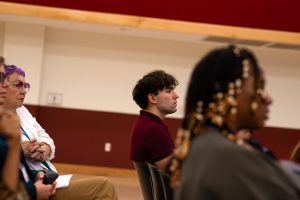
Reverend Carolyn Wilkins, who has worked with civil rights and justice leaders throughout her career, gave a presentation on “Honoring the Women Visionaries of Justice and Peace.” In her talk, Wilkins said that important civil rights movement leaders, like Martin Luther King Jr., would not have been as influential or efficient if it were not for the women in their lives.
“Without Coretta, there wouldn’t have been a Martin,” Wilkins said. “I hope you know that about so many leaders, that if they did not have the power and strength at home with their families, who is working with them at night, helping them do their programs, do the flyers, and taking care of the children? Because women very seldom get their due, but who they support would not have been who they were without the wife.”
Wilkins highlighted civil rights activists such as Fannie Lou Hamer, who helped Black voters in Mississippi become enfranchised, and stressed the importance of using that right to vote.
“I always encourage you to look at it from this standpoint now: you have the power to vote, the honor to vote, because people died,” Wilkins said. “They intentionally marched through cities, gave their lives, because it was so important. So please vote, even if you are not all in favor of any candidate, because not voting is not the way to protest.”


